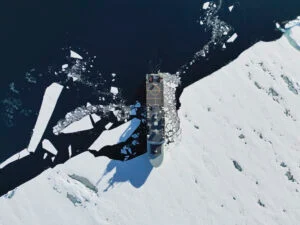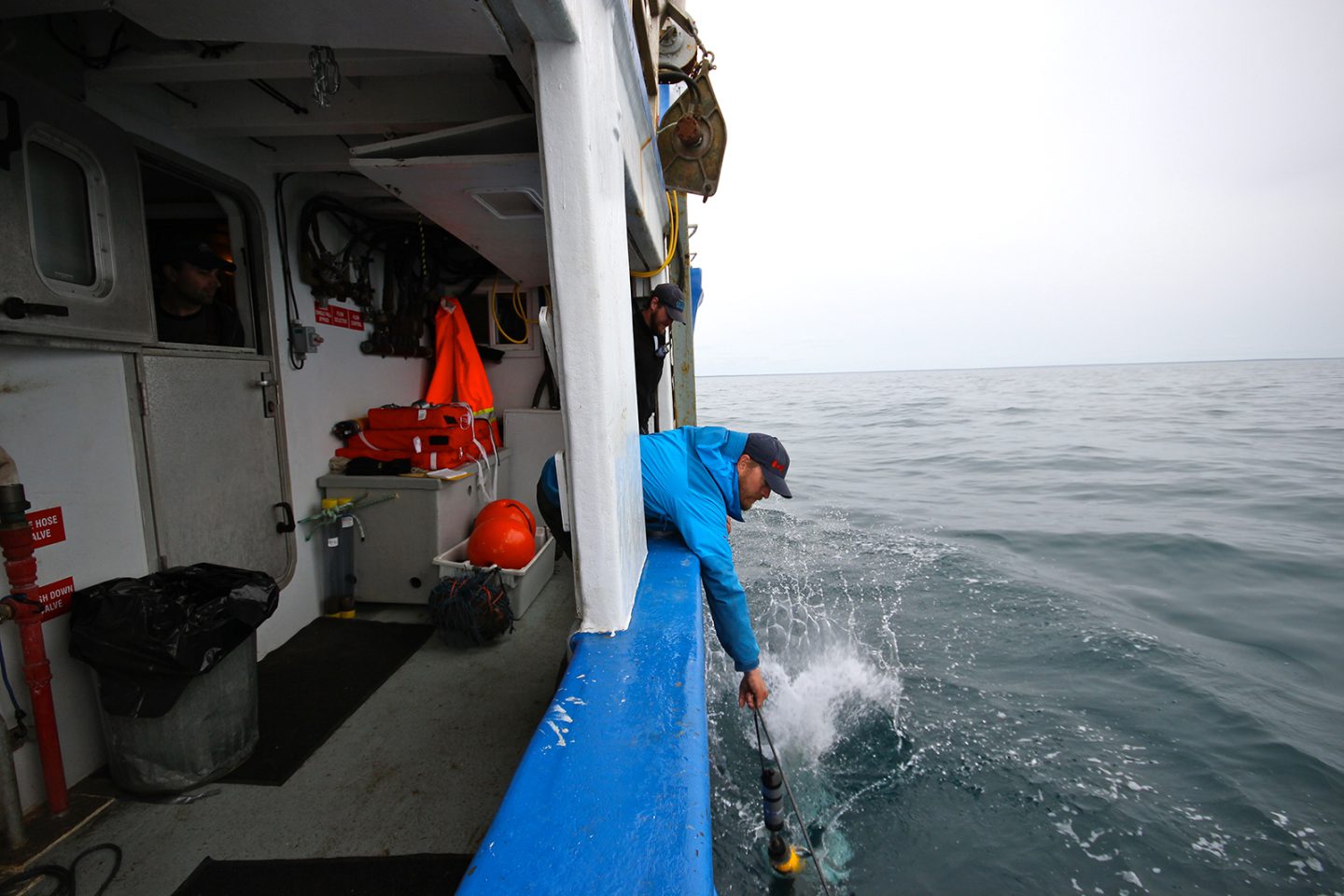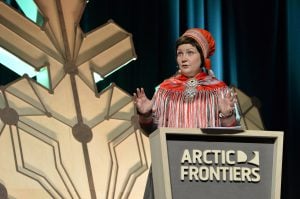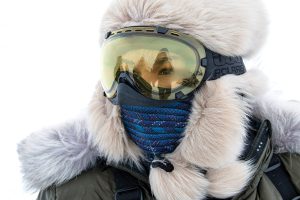
People & Culture
On thin ice: Who “owns” the Arctic?
As the climate heats up, so do talks over land ownership in the Arctic. What does Canadian Arctic Sovereignty look like as the ice melts?
- 4353 words
- 18 minutes
This article is over 5 years old and may contain outdated information.
Science & Tech

Jean-Sébastien Moore knows first-hand that building relationships with Inuit communities can be key to successful research in the Arctic.
The biologist from Quebec City’s Université Laval collaborates with a Fisheries and Oceans Canada research team and Cambridge Bay locals to track the behaviour of migrating Arctic char around southeast Victoria Island, Nunavut, using acoustic transmitters and genetic data. The project, which is supported by Polar Knowledge Canada (POLAR) and its Canadian High Arctic Research Station campus, is of keen interest to the community.
People in Cambridge Bay depend on Arctic char for food and operate a small commercial fishery that’s an important part of the local economy. “Our goal,” says Moore, “is to provide information that will help keep the subsistence and commercial char fisheries healthy well into the future.”
Moore implants tiny transmitters into the char that send acoustic signals to floating receivers, telling him where the fish go and how their behaviour changes from year to year. If they’re poorly placed, these instruments won’t receive signals, but, he explains, local experts have guided the research team to excellent locations that would otherwise never have been considered. “We’ve learned that in the ocean the char follow the coastline, stopping for a while at each estuary. That means that in the event of an environmental emergency like an oil spill from a ship, those areas need immediate protection.”

Fishery managers have long assumed that char winter along their natal rivers where they spawn every few years. But by using genomics to identify the natal rivers of individual fish, Moore and his colleagues have discovered that in years when they don’t spawn, char from a wide area swim up a short river to Ferguson Lake (Tahiryuaq) to winter, rather than up the longer rivers to their spawning grounds. Moore speculates that they do this to save energy by travelling a shorter distance when they’re not spawning.

That knowledge is important in managing the fishery: “Currently, each river receives a separate fishing quota. Now that we know the importance of that single lake to char populations from around the region, we can develop quotas that reflect how the fish actually behave.”
Cooperation with Cambridge Bay residents continues to be essential to the research, says Moore, who in 2016 had the opportunity to learn from local experts at Iqaluktuuq, a fishing site west of the hamlet that Inuit have used for centuries. There, during a knowledge exchange camp supported in part by POLAR, elders fished with and passed generations of expertise on to local young people. “Arctic char is ingrained in their lives,” says Moore. “It’s food, community, culture, home, survival and history.”


Are you passionate about Canadian geography?
You can support Canadian Geographic in 3 ways:

People & Culture
As the climate heats up, so do talks over land ownership in the Arctic. What does Canadian Arctic Sovereignty look like as the ice melts?

Environment
The uncertainty and change that's currently disrupting the region dominated the annual meeting's agenda

Science & Tech
The Canadian High Arctic Research Station is set to open in Cambridge Bay, Nunavut, later this year. How will it affect our understanding and appreciation of the North and the rapid change occurring there?

Science & Tech
As geotracking technology on our smartphones becomes ever more sophisticated, we’re just beginning to grasps its capabilities (and possible pitfalls)